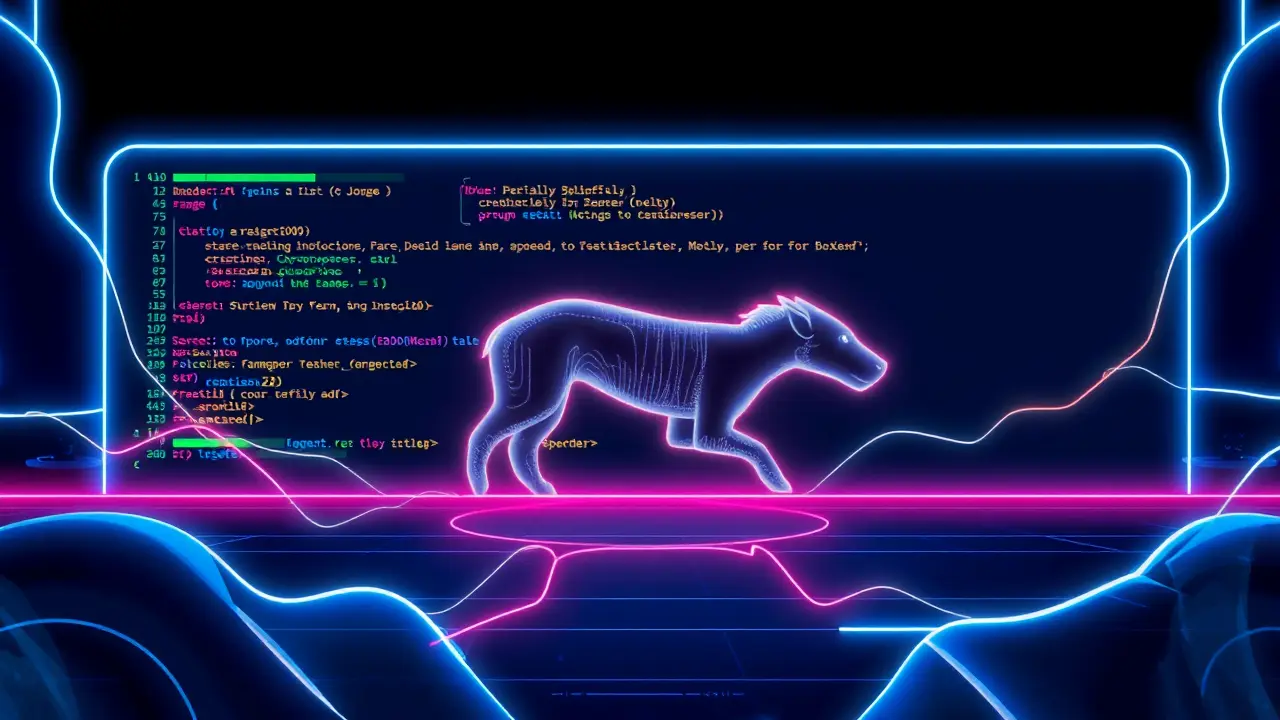
AIlarge language modelsInference and Serving
Cursor Releases Composer, Its First In-House Coding LLM
DA
Daniel Reed
16 hours ago7 min read4 comments
The development landscape shifted significantly this week as Cursor, the AI-powered coding environment from startup Anysphere, unveiled Composer—its first proprietary large language model specifically engineered for software development. This isn't just another incremental update; Composer represents a fundamental architectural departure in how AI coding assistants are conceived and trained.Unlike general-purpose models from OpenAI, Anthropic, or Google that Cursor previously integrated, Composer was built from the ground up using reinforcement learning within actual development environments, essentially learning to code by coding in real-world scenarios rather than merely predicting tokens from static datasets. The model employs a mixture-of-experts (MoE) architecture, a sophisticated approach that allows different specialized components to activate for different types of coding tasks, contributing to its remarkable claimed performance of completing most interactions in under 30 seconds while processing at approximately 250 tokens per second.This speed, about twice as fast as leading fast-inference models and four times quicker than comparable frontier systems according to Cursor's internal 'Cursor Bench' metrics, isn't just a technical bragging right—it fundamentally changes the developer experience by reducing the cognitive friction that plagues slower AI systems, enabling what the company describes as 'staying in the flow' during complex programming tasks. What makes Composer particularly interesting from a research perspective is its training methodology: rather than conventional supervised learning on code repositories, the model was trained through reinforcement learning while operating inside full codebases using production tools including file editors, semantic search, and terminal commands.This approach allowed Composer to develop emergent behaviors like autonomously running unit tests, fixing linter errors, and performing multi-step code searches—capabilities that typically require separate specialized tools or manual intervention. The model's development followed an internal prototype called Cheetah, which focused primarily on latency reduction, but Composer maintains that speed while dramatically expanding reasoning capabilities for multi-step coding, refactoring, and testing tasks.This progression mirrors broader trends in AI research where specialized, domain-specific models are increasingly outperforming general-purpose counterparts on targeted applications. Composer's integration with Cursor 2.0 enables particularly interesting workflows, including running up to eight agents in parallel within isolated workspaces using git worktrees or remote machines—a multi-agent approach that could potentially revolutionize how development teams approach complex coding projects by enabling true collaborative AI systems. From an infrastructure perspective, training Composer required building custom reinforcement learning systems combining PyTorch and Ray across thousands of NVIDIA GPUs, with specialized MXFP8 MoE kernels and hybrid sharded data parallelism to manage the computational intensity.This technical investment highlights the growing recognition within the AI community that truly effective coding assistants require not just better algorithms but co-designed systems where the model and its operating environment evolve together. The implications for enterprise development are substantial—Cursor has optimized its Language Server Protocols specifically for Composer, reducing latency when interacting with large repositories, while providing administrative controls through team rules, audit logs, and sandbox enforcement.As AI coding tools evolve from passive suggestion engines to active collaborative partners, Composer represents a significant milestone in what might be called the 'agentic turn' in software development, where AI systems don't just complete code snippets but actively participate in the entire software development lifecycle. This shift raises fascinating questions about the future of programming—will developers become orchestrators of AI agents rather than direct code producers? How will software quality assurance evolve when AI systems can autonomously test and review their own code? While GitHub Copilot and similar tools have normalized AI-assisted coding, Composer points toward a future where human developers and autonomous models truly share the workspace, collaborating on complex engineering challenges in real-time.The model's focus on reinforcement learning within production environments suggests a broader trend toward what might be called 'embodied AI' for software development—systems that learn not from static data but from interactive experience within the environments where they'll ultimately operate. This approach could eventually extend beyond coding to other complex domains where theoretical knowledge must be applied in dynamic, constrained environments. As the AI coding landscape continues to evolve at a breathtaking pace, Composer stands as a compelling example of how specialized models trained with novel methodologies are pushing the boundaries of what's possible in human-AI collaboration for software creation.
#featured
#Cursor
#Composer
#AI coding
#LLM
#agentic workflows
#mixture-of-experts
#speed boost
Stay Informed. Act Smarter.
Get weekly highlights, major headlines, and expert insights — then put your knowledge to work in our live prediction markets.
Related News
© 2025 Outpoll Service LTD. All rights reserved.














